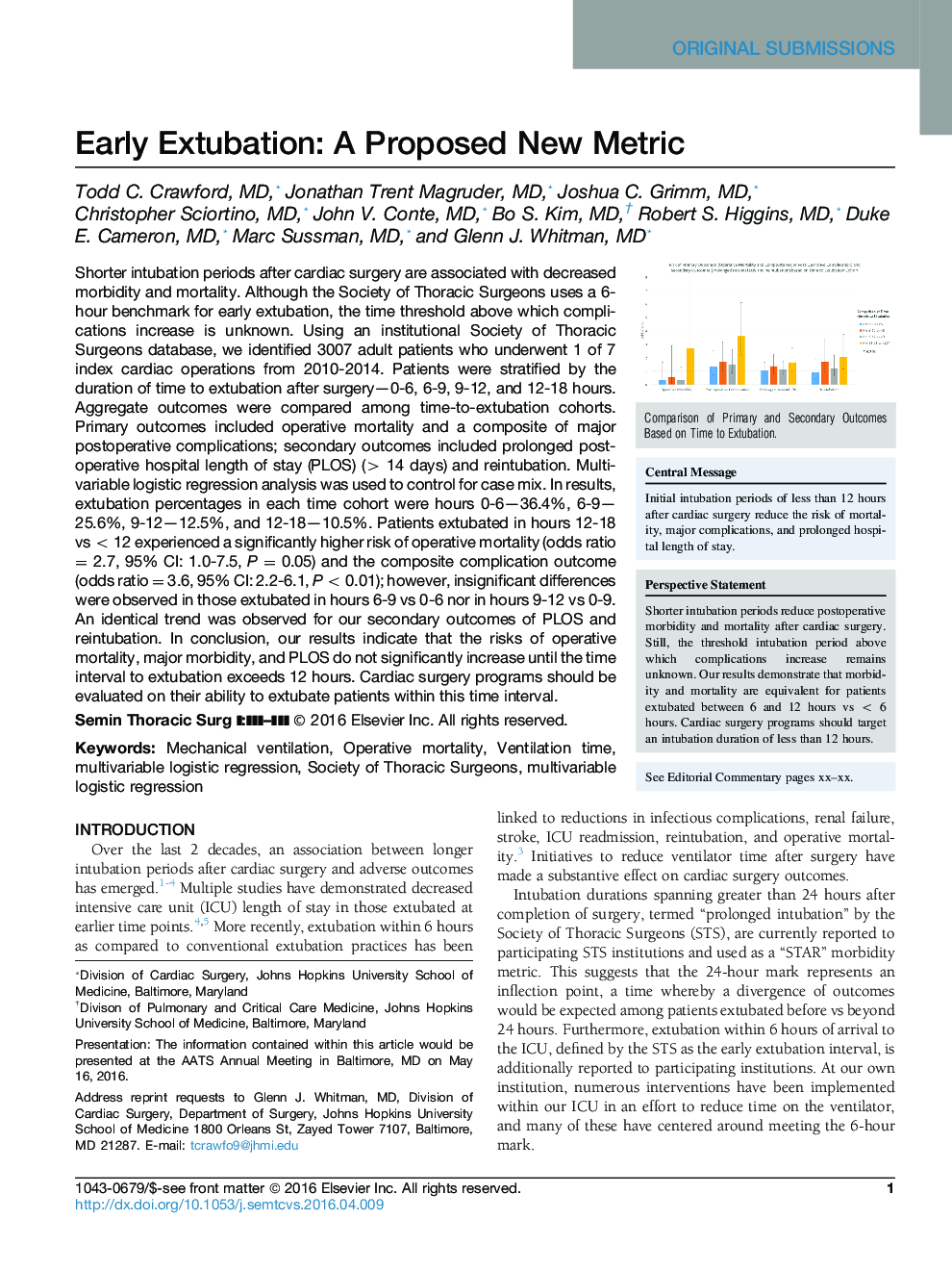| Article ID | Journal | Published Year | Pages | File Type |
|---|---|---|---|---|
| 5621537 | Seminars in Thoracic and Cardiovascular Surgery | 2016 | 10 Pages |
Abstract
Shorter intubation periods after cardiac surgery are associated with decreased morbidity and mortality. Although the Society of Thoracic Surgeons uses a 6-hour benchmark for early extubation, the time threshold above which complications increase is unknown. Using an institutional Society of Thoracic Surgeons database, we identified 3007 adult patients who underwent 1 of 7 index cardiac operations from 2010-2014. Patients were stratified by the duration of time to extubation after surgery-0-6, 6-9, 9-12, and 12-18 hours. Aggregate outcomes were compared among time-to-extubation cohorts. Primary outcomes included operative mortality and a composite of major postoperative complications; secondary outcomes included prolonged postoperative hospital length of stay (PLOS) (> 14 days) and reintubation. Multivariable logistic regression analysis was used to control for case mix. In results, extubation percentages in each time cohort were hours 0-6-36.4%, 6-9-25.6%, 9-12-12.5%, and 12-18-10.5%. Patients extubated in hours 12-18 vs < 12 experienced a significantly higher risk of operative mortality (odds ratio = 2.7, 95% CI: 1.0-7.5, P = 0.05) and the composite complication outcome (odds ratio = 3.6, 95% CI: 2.2-6.1, P < 0.01); however, insignificant differences were observed in those extubated in hours 6-9 vs 0-6 nor in hours 9-12 vs 0-9. An identical trend was observed for our secondary outcomes of PLOS and reintubation. In conclusion, our results indicate that the risks of operative mortality, major morbidity, and PLOS do not significantly increase until the time interval to extubation exceeds 12 hours. Cardiac surgery programs should be evaluated on their ability to extubate patients within this time interval.
Related Topics
Health Sciences
Medicine and Dentistry
Cardiology and Cardiovascular Medicine
Authors
Todd C. MD, Jonathan Trent MD, Joshua C. MD, Christopher MD, John V. MD, Bo S. MD, Robert S. MD, Duke E. MD, Marc MD, Glenn J. MD,
